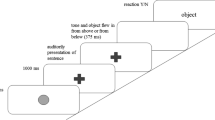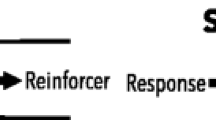Abstract
Preschool children imitated two matched lists of sentences varying in length, in syntactic complexity, and in semantic complexity. Sentences on one list were acted out with toys prior to imitating them. For 3-year-olds, enactment increased retention of all sentential variables: number of words, number of frames, number of propositions, and syntax. For children younger than 3 years, enactment increased only the number of words retained, while for children older than 4 years, enactment had a minimal effect on all sentential variables. In a second experiment, prior enactment had long-term effects on the degree to which children's spontaneous stories about the toys resembled the previous sentences that they had been given to imitate. Long-term effects, however, did not extend to retention of syntax. Enactment appears to increase both young children's interest in a sentence imitation task and the amount of semantic encoding in which they engage. Its effect, however, is mediated by the degree of mastery of relevant linguistic rules.
Similar content being viewed by others
References
Ackerman, B. P. (1985). The effects of specific and categorical orienting on children's incidental and intentional memory for pictures and words.Journal of Experimental Child Psychology, 39, 300–325.
Bloom, L., & Lahey, M. (1978).Language development and language disorders. New York: Wiley.
Cox, D., & Waters, H. S. (1986). Sex differences in the use of organization strategies: A developmental analysis.Journal of Experimental Child Psychology, 41, 18–37.
Craik, F. I. M. & Lockhart, R. S. (1972). Levels of processing: A framework for memory research.Journal of Verbal Learning and Verbal Behavior, 11, 671–684.
Emmerich, H. J., & Ackerman, B. P. (1979). The effect of orienting activity on memory for pictures and words in children and adults.Journal of Experimental Child Psychology, 28, 499–515.
Evans, R. C. (1980). Depth of processing and recognition memory performance in first-, third-, and eighth-graders.Journal of Experimental Education, 48, 217–222.
Hale-Haniff, M., & Siegel, G. M. (1981). The effect of context on verbal elicited imitation.Journal of Speech and Hearing Disorders, 46, 27–30.
Ledger, G. W., & Ryan, E. B. (1982). The effects of semantic integration training on memory for pictograph sentences.Journal of Experimental Child Psychology, 33, 39–54.
Lust, B. (1977). Conjunction reduction in child languageJournal of Child Language, 4, 257–88.
Murphy, M. D., & Brown, A. L. (1975). Incidental learning in preschool children as a function of level of cognitive analysis.Journal of Experimental Child Psychology, 19, 509–523.
Owings, R. A., & Baumeister, A. A. (1979). Levels of processing, encoding strategies, and memory development.Journal of Experimental Child Psychology, 28, 100–118.
Paris, S. G., & Lindauer, B. K., (1976). The role of inference in children's comprehension and memory for sentences.Cognitive Psychology, 8, 217–227.
Rodd, L. J., & Braine, M. D. S. (1970). Children's imitation of syntactic constructions as a measure of linguistic competence.Journal of Verbal Learning and Verbal Behavior, 10, 430–443.
Sachs, J. S. (1967). Recognition memory for syntactic and semantic aspects of connected discourse.Perception and Psychophysics, 2, 437–42.
Saltz, E., & Dixon, D. (1982). Let's pretend: The role of motoric imagery in memory for sentences and words.Journal of Experimental Child Psychology, 34, 77–92.
Smirnov, A. A., & Zinchenko P. L., (1969). Problems in the psychology of memory. In M. Cole & I. Maltzman (Eds.),Handbook of contemporary Soviet psychology. New York: Basic Books.
Smith, C. S., & van Kleeck, A. (1986). Linguistic complexity and performance.Journal of Child Language, 13, 389–408.
Waters, H. S., & Waters, E. (1979). Semantic processing in children's free recall: The effects of context and meaningfulness on encoding variability.,Child Development, 50, 735–746.
Wolff, P., & Levin, J. R. (1972). The role of overt activity in children's imagery production.Child Development, 43, 535–547.
Author information
Authors and Affiliations
Rights and permissions
About this article
Cite this article
Blake, J., Austin, W. & Lowenstein, J. The effect of enactment upon sentence imitation in preschool children. J Psycholinguist Res 16, 351–367 (1987). https://doi.org/10.1007/BF01069288
Accepted:
Issue Date:
DOI: https://doi.org/10.1007/BF01069288




